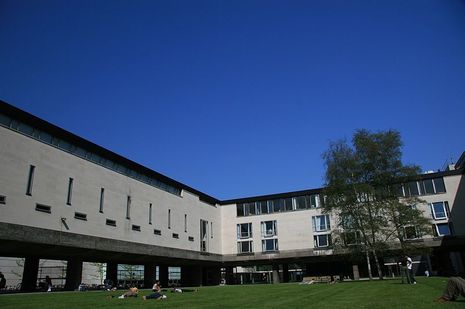No more recorded lectures announcement sparks criticism
After making recorded lectures available due to the pandemic, one department said online learning had undermined the status of in-person teaching

Several University departments have announced that lectures will be given in-person this year. In many cases, recordings will only be available to those who have requested special permission from the Accessibility & Disability Resource Centre (ADRC).
This follows a statement from the University’s education committee released over the summer, saying that lectures should be given in-person except where a valid reason exists.
While their statement recognised the value of recordings for students with access disabilities, as well as their value during times of revision or illness, the committee said that in-person lectures are “more engaging and effective” than recordings alone.
Faculties have adopted a general stance on in-person lectures in line with the committee’s expectation, leaving the final choice up to individual lecturers.
The HSPS Faculty announced that in-person lectures will be standard this year, as recorded lectures have led to “declining attendance, undermining the status of in-person teaching and depriving students of the pedagogical and social benefits of lecture hall teaching”. Students with special needs have been directed to the Disability Resource Centre to “request permission for recording of lectures”.
The MMLL Faculty has also made in-person lectures the norm, allowing disabled students to record lectures.
However, the students “need evidence to support this requirement”. Students with disabilities must inform the ADRC of their situation and wait for the University to make an “appropriate adjustment to improve their learning experience”.
Meanwhile, the History Faculty told students, on 5 October, that the “vast majority of the Faculty’s teaching will take place in-person this year”.
The Faculty stated: “In light of the interactive nature of much of our teaching and the social and pedagogical importance of lecture attendance, the Faculty is not expecting lecturers to record their teaching this year, though some may wish to continue to do so.”
In their email to students on 5 October, the History Faculty did not mention any provision that would be put in place for students with disabilities for whom recorded lectures are especially important.
The Faculty provided greater clarity in an email on 14 October, explaining that they have updated the lecture recording policy and are now recording lectures for students with documentation from the ADRC.
The Department of History and Philosophy of Science has decided to leave lecturers largely free to choose whether to make lecture recordings available.
One second year student told Varsity, “Not all people with disabilities are comfortable in identifying as disabled to the University, or are at different stages of their journey along that process. To then add the burden of requesting special provisions on them seems unfair”.
SU Disabled Students’ Officer, Elia Chitwa criticised the decision, saying it “shows a distinct lack of care and respect for disabled students”.
They added that the decision will only increase the “overwhelming administrative burden disabled students face”
Students also raised the issue of scheduling conflicts, with many having to choose between lectures and other university commitments, as well as the case of unforeseen complications, with one student saying “you shouldn’t have to be choosing between that and your education”.
 News / Judge Business School advisor resigns over Epstein and Andrew links18 February 2026
News / Judge Business School advisor resigns over Epstein and Andrew links18 February 2026 News / Hundreds of Cambridge academics demand vote on fate of vet course20 February 2026
News / Hundreds of Cambridge academics demand vote on fate of vet course20 February 2026 News / Petition demands University reverse decision on vegan menu20 February 2026
News / Petition demands University reverse decision on vegan menu20 February 2026 News / CUCA members attend Reform rally in London20 February 2026
News / CUCA members attend Reform rally in London20 February 2026 News / Caius students fail to pass Pride flag proposal20 February 2026
News / Caius students fail to pass Pride flag proposal20 February 2026










